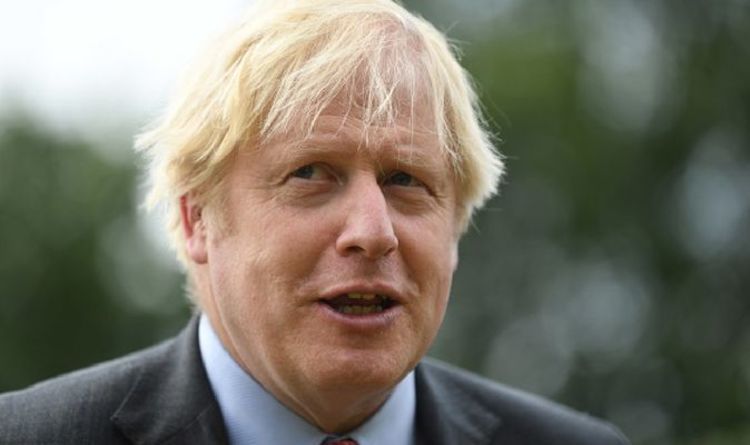England train ahead of Ukraine Euro 2020 quarter-final
When you subscribe we will use the information you provide to send you these newsletters. Sometimes they’ll include recommendations for other related newsletters or services we offer. Our Privacy Notice explains more about how we use your data, and your rights. You can unsubscribe at any time.
Chair of the European Parliament’s environment committee Pascal Canfin is the latest to join calls for the Euro 2020 final to be held away from London, where coronavirus cases are increasing. In a letter to Parliament President David Sassoli, Mr Canfin lashed out at Boris Johnson’s reluctance to move the football final, branding the UK Prime Minister “irresponsible”.
He wrote: “The decision of Boris Johnson to allow 60,000 spectators to Wembley for the semi-finals and the final of the Euro 2020 is irresponsible while the variant Delta threatens our way out of the crisis.
“Europe must demand that matches take place with a gauge or on the continent.”
Writing on behalf of his committee, he continued: “We demand therefore that the UEFA reconsiders its decision to organise the Euro 2020’s semi-finals and final at the Wembley Stadium, or at least, that the UEFA and the UK authorities reassess health and safety measures and the crowd capacity decision, as stricter measures are the only alternatives available to guarantee the health and safety of football fans.”
Echoing Mr Canfin’s outburst, German Interior Minister Horst Seehofer called European football’s governing body UEFA “utterly irresponsible” on Thursday for going ahead with the plans.
He said: “I cannot explain why UEFA is not being sensible …I suspect it is due to commercialism.”
With COVID-19 restrictions varying from nation-to-nation, crowd sizes have ranged from completely full, such as 60,000 in Budapest, to 25-45 percent capacity in other venues where there have often been around 10-15,000 spectators.
Mr Seehofer said a match with 60,000 spectators would inevitably promote the spread of COVID-19.
At matches in Munich, he noted, only 14,500 fans were allowed in and all were required to wear masks, keep their distance and upload a negative COVID-19 test into an app.
In a statement to Reuters, UEFA said it was “fully aligned” with local health authorities’ guidelines at every venue.
They said: “The final decisions with regards to the number of fans attending matches and the entry requirements to any of the host countries and host stadiums fall under the responsibility of the competent local authorities, and UEFA strictly follows any such measures.”
Concern over the potential health knock-on has been rising despite the tournament’s on-field entertainment.
Scotland’s health authority said earlier this week 1,991 people had been identified as attending a Euro 2020 event while infectious, of whom 1,294 had travelled to London and 397 gone to Wembley where England played Scotland.
Finland said more than 300 nationals were infected while supporting their team.
DON’T MISS:
Batley and Spen by-election result LIVE: Galloway demands recount [DATA]
Brexit: EU powergrab begins as French CEO pulls UK operation [LIVE BLOG]
EU and UK told to ‘grow up’ to exploit full Brexit trade potential [ANALYSIS]
And Russia’s deputy prime minister has called for a ban on gatherings of more than 500 people. St Petersburg is due to host a quarter-final on Friday, with 50% capacity allowed in a stadium that would usually hold 68,000 people.
The World Health Organisation (WHO) also weighed in on Thursday, saying crowds at Euro 2020 football stadiums and in pubs and bars in host cities were driving an infection rise.
But UEFA’s Euro 2020 medical advisor Daniel Koch said vaccinations and border controls would prevent a big new wave.
He said: “It cannot be totally excluded that events and gatherings could ultimately lead to some local increase in the number of cases.
“But this would not only apply to football matches but also to any kind of situations that are now allowed as part of the easing measures decided by the competent local authorities.”
Source: Read Full Article



